In an interview with the Government Electronic Information Portal, Deputy Prime Minister Nguyen Chi Dung revealed the most breakthrough and outstanding contents in Resolution 68-NQ/TW on private economic development.
Changes in views and perceptions about the role and position of the private economic sector
Specifically, according to Deputy Prime Minister Nguyen Chi Dung, the highlight of this Resolution is first of all the change in perspective and awareness of the role and position of the private economic sector.
If in the past, we identified the private economic sector as a part of the economy, then an important part of the economy, now the Resolution has taken an important step forward in affirming that the private economic sector is the most important driving force of the national economy.
We have recognized and affirmed the correct role of this sector, based on the practical contributions and role of the private economy in the process of socio-economic development of the country and placed the private economy in its rightful position. This is a change of extremely important significance.
Boldly give back legitimate rights to businesses
Next, we also boldly give back legitimate rights to businesses, ensuring basic rights such as property ownership, freedom of business, the right to fair competition, and the right to fair access to the country's resources.
These rights are actually recognized in the Constitution, for example, the provision that people and businesses are free to do business in industries that are not prohibited by law. However, in reality, there are still many barriers that limit this freedom of businesses.
Consider businesses as partners and move from "pre-audit" to "post-audit" mechanisms
Also according to Deputy Prime Minister Nguyen Chi Dung, in the new Resolution, the Politburo strongly affirmed that enterprises have the right to freedom of business and enjoy equality in a competitive environment.
Previously, enterprises were considered as an object to be managed, but now, we identify private enterprises as partners to join the State in creating and developing the country.
We no longer place great emphasis on old-style management. All mechanisms and policies are built on the spirit of putting people and businesses at the center and as the main subject; all policies are designed to revolve around serving and creating favorable conditions for people and businesses to develop. Businesses are also given the opportunity to participate in major projects, strategic projects, and important national projects.
It can be seen that this is a revolution in thinking and institutions, leading to very big changes. For example, the policy of abandoning the "ask - give" mechanism, abandoning the mindset of "if you can't manage, then ban" - a safe mindset but hinders development.
In the past, we sometimes created barriers, then removed them and considered them reform and innovation. This time, we proactively designed and created a favorable environment for development, so that the economic flow could flow naturally, even making it flow faster, in the right direction, and better, rather than prohibiting it.
"We consider businesses as partners and have boldly shifted from the "pre-inspection" mechanism to the "post-inspection" mechanism. These are huge institutional changes. Instead of managing in an "inverted cone" manner, tightening input but loosening output, we learn from other countries' experiences and follow the "funnel" pattern. That is, creating conditions for open and free input, but managing output very tightly with tools, standards, and regulations, and strengthening supervision and inspection. This will help businesses reduce difficulties when entering the market, reduce costs and time," the Deputy Prime Minister shared.
The resolution has proposed 8 specific policy groups.
In addition to changes in thinking, perception and perspective, as well as ensuring freedoms, the Resolution also puts forward many specific policy groups.
According to the requirements of the Politburo and the General Secretary, these policies must be truly "on point" and "correct". The Prime Minister also requested that the policies must be "breakthrough", "strong enough", and at the same time "cover" and "comprehensive" of the problems that businesses are facing, and more importantly, must be "specific", "easy to understand", "easy to remember" so that they can be "immediately implemented".
In line with that guiding spirit, the Resolution has proposed eight policy groups, including one policy group that clearly regulates issues related to access to resources.
Create conditions for businesses, especially small and medium enterprises, to access land
For example, regarding the issue of land and production premises - one of the biggest difficulties for businesses today, the Resolution stipulates that each locality must set aside a corresponding land fund in industrial parks and industrial clusters, with an area of about 20 hectares, or at least 5% of clean land fund with infrastructure investment, to be reserved for small and medium enterprises and creative startups.
In addition, these enterprises will receive a 30% reduction in land rent for a period of 5 years. For infrastructure enterprises that provide land and reduce land prices for these priority subjects, they will have their land tax payable deducted.
This is a specific solution to facilitate businesses, especially small and medium-sized enterprises, to access land, resolving the previous situation when infrastructure enterprises mainly prioritized leasing to large enterprises, making it difficult for small and medium-sized enterprises with more limited needs and capacity to access.
Although Decree No. 35/2022/ND-CP on the management of industrial parks and economic zones previously stipulated that a certain percentage (3% or 5% of the area) be reserved for small businesses, the implementation was not really effective. This time, the Resolution provides more specific and breakthrough provisions.
Build mechanisms and policies, have a dedicated commercial credit channel for small and medium enterprises,...
Deputy Prime Minister Nguyen Chi Dung said another issue that businesses are very concerned about is access to capital.
Accordingly, the Resolution also clearly stipulates that it is necessary to develop mechanisms and policies, and have a dedicated commercial credit channel for small and medium-sized enterprises, startups, newly established enterprises and enterprises operating in priority areas such as digital transformation and green transformation.
At the same time, there must be a mechanism to support interest rates for these businesses when necessary, possibly through state support funds, to help them both access capital and reduce capital costs.
We also boldly propose a mechanism to allow the use of more flexible forms of security such as unsecured loans or future-formed collateral, so that businesses, especially small and medium-sized enterprises – which often lack traditional collateral – can access bank loans.
Previously, this was very difficult and the interest rates were high. The resolution has expanded the regulations so that commercial banks can consider and lend more conveniently and at lower costs.
Each year, a business is only inspected once, except in cases where there are clear signs of law violations.
In addition, Deputy Prime Minister Nguyen Chi Dung said that inspection and examination work is also very important. The resolution affirms that inspection and examination acts that cause harassment, duplication, and unnecessary time extension are strictly prohibited.
At the same time, ensure the principle that each year, a business is only inspected and audited once, except in cases where there are clear signs of law violations or specific evidence. Along with that, I think that trying to switch to online inspection, minimizing direct inspection, to reduce inconvenience and create peace of mind for businesses is a very strong reform.
Next is the issue of handling violations - a matter that businesses are also very concerned about. In handling violations, this Resolution has affirmed: For cases related to civil, administrative and economic matters, priority will be given to using administrative, civil and economic handling measures.
Another very important content is that, if in a case where the provisions of the law can be understood in the direction of criminal handling, or not criminal handling (that is, there are borderline situations), the Resolution requires resolutely not to handle criminal handling. This is a very new and very prominent point.
In cases where criminal proceedings are required, priority will still be given to using economic measures to remedy the consequences first and using the results of that remedy as a basis for considering and resolving the next steps, in the direction of considering reducing criminal liability if the enterprise has actively overcome the consequences. Deputy Prime Minister Nguyen Chi Dung said that this content is extremely important and highly groundbreaking.
Also related to the settlement of criminal and dispute issues, two very basic issues are emphasized: Ensuring the principle of non-retroactivity for legal provisions issued later that are disadvantageous to enterprises (enterprises will not be held responsible for more disadvantageous regulations issued after the time the act occurred; Ensuring the principle of presumption of innocence in the process of investigation and trial of cases related to enterprises.
Encourage and honor businesses
Along with that, the Resolution emphasizes the honor, reward, and recognition of businesses and entrepreneurs. According to Deputy Prime Minister Nguyen Chi Dung, there is a phrase in the Resolution that he really likes, which is to consider entrepreneurs as "soldiers on the economic front" . Because they are the ones who directly create material wealth for society, directly pay taxes, contribute to the State budget, directly solve employment for workers and directly participate in the process of promoting the development of the country.
The Resolution affirms the new role and mission of the private economic sector; encourages and honors businesses so that they can feel secure and confident in their intelligence, mettle and capacity, and participate in the development and construction of the country.
In addition, a number of issues that Deputy Prime Minister Nguyen Chi Dung said have extremely important impacts on businesses and this business sector. One point strongly affirmed in the Resolution is that the State must ensure its role in creating development and must not intervene with administrative measures that go against market principles and distort the principles of the market economy.
Cut administrative procedures, abolish business license fees, exempt business income tax for 3 years from the start of operation
Regarding the reduction of administrative procedures and the creation of a favorable and attractive investment and business environment, the Resolution stipulates very specifically: By 2025, it is necessary to ensure a reduction of at least 30% of the time to process administrative procedures, 30% of business conditions and 30% of compliance costs for businesses.
Regarding financial measures, the Resolution advocates abolishing business license fees. In addition, newly established enterprises are exempted from corporate income tax for 3 years from the date of commencement of operation, and factory rent is exempted for the first 3 years.
"Another very practical content on science and technology, innovation and digital transformation: The Resolution designs a legal framework for a controlled testing mechanism, which we often call a "sandbox".
For research and development (R&D) activities, the Resolution allows enterprises to double (200%) the actual costs into deductible expenses when calculating corporate income tax.
At the same time, enterprises are allowed to allocate up to 20% of pre-tax profits to establish a fund for science, technology and innovation development. These are extremely important policies," said Deputy Prime Minister Nguyen Chi Dung.
Strengthening connections between businesses
Sharing more about Resolution 68, Deputy Prime Minister Nguyen Chi Dung said that in this resolution, there are also mechanisms and policies to strengthen the connection between enterprises, as well as between domestic private enterprises and FDI enterprises. Currently, the connection between these two areas is still quite fragmented, making it difficult to create complete value chains and supply chains.
Resolution 68-NQ/TW sets out mechanisms and policies to encourage businesses to jointly form value chains and supply chains; strengthen links between domestic and foreign enterprises so that we can take advantage of the advantages that the FDI sector brings to the economy.
Finally, it is a truly "hit" and "correct" mechanism to encourage individual businesses to develop and boldly convert to operating in the form of enterprises. For example, simplifying financial and accounting regulations for business households; providing consulting services, legal support; providing free digital platforms for them to apply technology.
In particular, the Resolution advocates the abolition of lump-sum tax. These measures are both a motivation and a pressure for business households to switch to operating under the enterprise model, but it is still necessary to ensure that these regulations are suitable to the conditions and characteristics of business households, avoiding the situation where business households are not bold enough to convert or encounter difficulties after conversion.
Source: https://phunuvietnam.vn/nhung-noi-dung-mang-tinh-dot-pha-trong-nghi-quyet-68-ve-phat-trien-kinh-te-tu-nhan-20250508151329264.htm


![[Photo] Prime Minister Pham Minh Chinh chairs a special Government meeting on the arrangement of administrative units at all levels.](https://vphoto.vietnam.vn/thumb/1200x675/vietnam/resource/IMAGE/2025/5/9/6a22e6a997424870abfb39817bb9bb6c)

![[Photo] Magical moment of double five-colored clouds on Ba Den mountain on the day of the Buddha's relic procession](https://vphoto.vietnam.vn/thumb/1200x675/vietnam/resource/IMAGE/2025/5/9/7a710556965c413397f9e38ac9708d2f)

![[Photo] Russian military power on display at parade celebrating 80 years of victory over fascism](https://vphoto.vietnam.vn/thumb/1200x675/vietnam/resource/IMAGE/2025/5/9/ce054c3a71b74b1da3be310973aebcfd)
![[Photo] General Secretary To Lam and international leaders attend the parade celebrating the 80th anniversary of the victory over fascism in Russia](https://vphoto.vietnam.vn/thumb/1200x675/vietnam/resource/IMAGE/2025/5/9/4ec77ed7629a45c79d6e8aa952f20dd3)


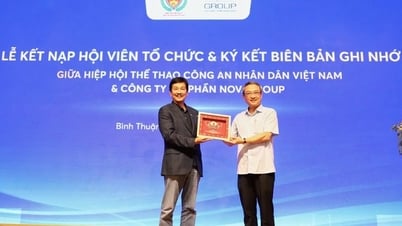
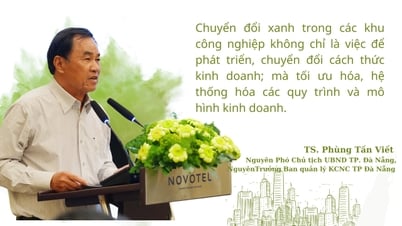
















































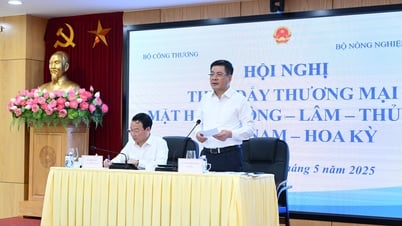



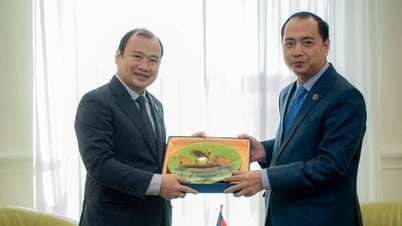

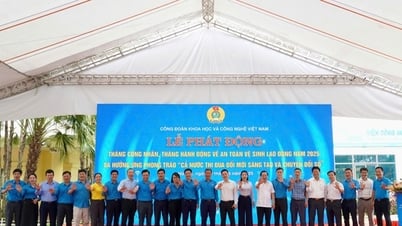

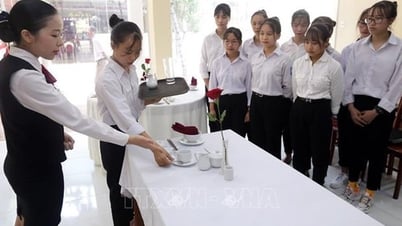
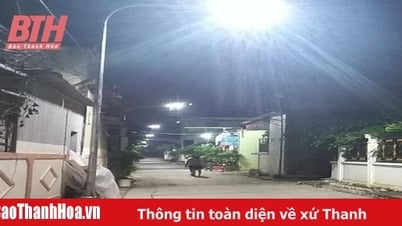

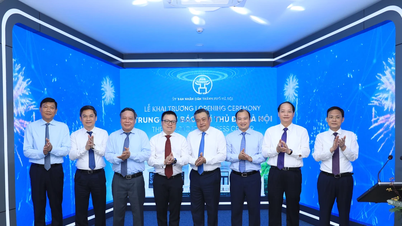

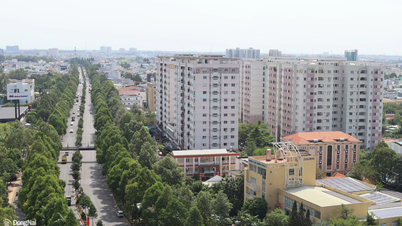



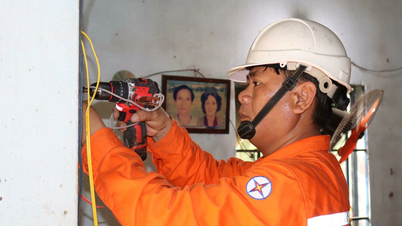
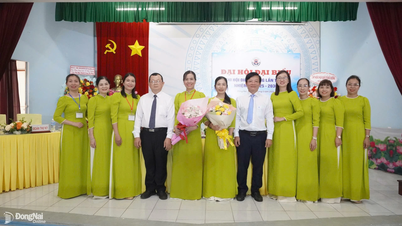










Comment (0)